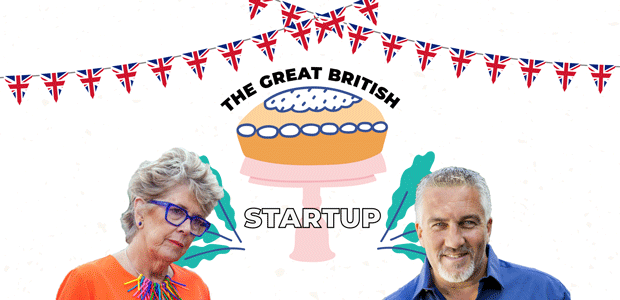
Whisking up innovation to create a show-stopping startup
If we can learn anything from Great British Bake Off, it’s that nobody wants a soggy bottom. A half-baked idea must stay in the oven for an adequate time to rise to its full potential. The same thinking can be applied to the start of a new business or venture.
It is essential to ensure your idea is fully formed before taking it out for general consumption.
There has never been a better time to start a business. We have ever-increasing access to resources and knowledge at our fingertips thanks to the information highway. The warp-speed at which technology is advancing presents an incredible opportunity to improve our quality of life. Consumers are hungry for the next tech solution that will make their lives easier. This increasing expectation for new ideas and services means the need for innovation has never been greater.
So, what does it take to be an innovator?
American scholar Clayton M Christiansen first described ‘disruptive innovation’ in 1995, as something that has the potential to change the rules of the game, no matter what the industry. For example, consider the cassette tape - now a fondly recalled relic of a bygone era thanks to streaming services that disrupted the music industry.
In order to create a truly innovative dish, mix in a dram of entrepreneurial spirit and make sure you have these key ingredients in your pantry:
Automation
Our workforce is straining under the burden of time-consuming, repetitive tasks, many of which could be easily automated. According to a recent In(Sights) report, automation of these process could save as many as 240 working hours a year. From admin to manufacturing, automation can save time and resources.
Automation doesn’t just apply to the workplace. These days, around 98% of households have a washing machine. When it was invented, it disrupted the way in which a home was run by the domestics of the day. Think of all the hours saved at home with the introduction of the washing machine.
Advice: Look at ways to reduce the grunt work. Ask yourself these questions:
- What could be the next big automated trend?
- Could incorporating an automated process take your idea to the next level from an end user perspective?
- What is the gap in the market desperate to be filled by a new automated service?
- What aspect of your own life could be made easier by automation? Chances are, someone else is looking for the same solution! Provide it.
Convenience
What does your customer need and what is the easiest way for them to get it? This is a key question to consider before launching anything.
Take online food delivery services such as Just Eat, for example. They met the need of the consumer, in this case ‘hunger’, and made the solution – food – easily and quickly accessible at the tap of a button. Any cuisine you can think of is available to suit all tastes and dietary requirements. You can even consider previous customer reviews to help make your decision.
The cherry on top? With the integration of Paypal, you don’t even have to get off your seat for cash. It’s all at the tip of your fingers.
Advice: A longwinded, complicated purchase experience is the biggest brand turn off for consumers. Make it as easy as possible to get your new product or service.
Instant expertise
Humans are notoriously curious creatures. The Internet age has heralded a new era of information consumption and we simply cannot get enough.
Looking at the health and fitness industry for insight, Fitbit and apps like MyFitnessPal have turned everyday people into fitness buffs, empowered with a better understanding of their own diet and exercise requirements. According to Euromonitor, the 7th top global trend in 2019 was ‘I can look after myself’, showing the growth in consumer desire to anticipate and respond to their own needs.
The top-grossing app at the moment is Calm, which supports consumers in the practice of mindfulness, and includes master-classes taught by world-renowned experts. Consumers want advice from a trustworthy and knowledgeable source, which they can reciprocate themselves.
Advice: Knowledge is power. Empowering consumers with the expertise you have accrued will be beneficial to your business. Find a way to connect industry experts in your field to the world and help them share their insight.
Personalisation
This is a vital part of modern innovation, but it must be contextual and applicable to your consumer’s life. Take music streaming services that curate personalised playlists from the data that is collected through use, or ride-sharing services, such as Uber, that remember your home address and preferred destinations. By personalising these experiences, brands have better engaged with the consumer and fostered stronger brand loyalty.
In beauty and skincare industries, products promising flawless results don’t always deliver at home. At Cutitronics, we’ve developed technologies that scan and measure consumers’ skin, allowing the connected app to advise on how best to use products based on their needs and surrounding environmental conditions. This approach meets the increasing consumer demand for quantifiable, personalised experiences, and improves their end result.
Advice: Consider how your product and service can be tailored for individuals and create positive brand experiences.
Innovation takes many forms, and can be difficult to inspire for any business leader. The above ingredients are a solid foundation for your start-up to build upon. Once you know the recipe, you can ensure your revolutionary business idea really takes the cake.

